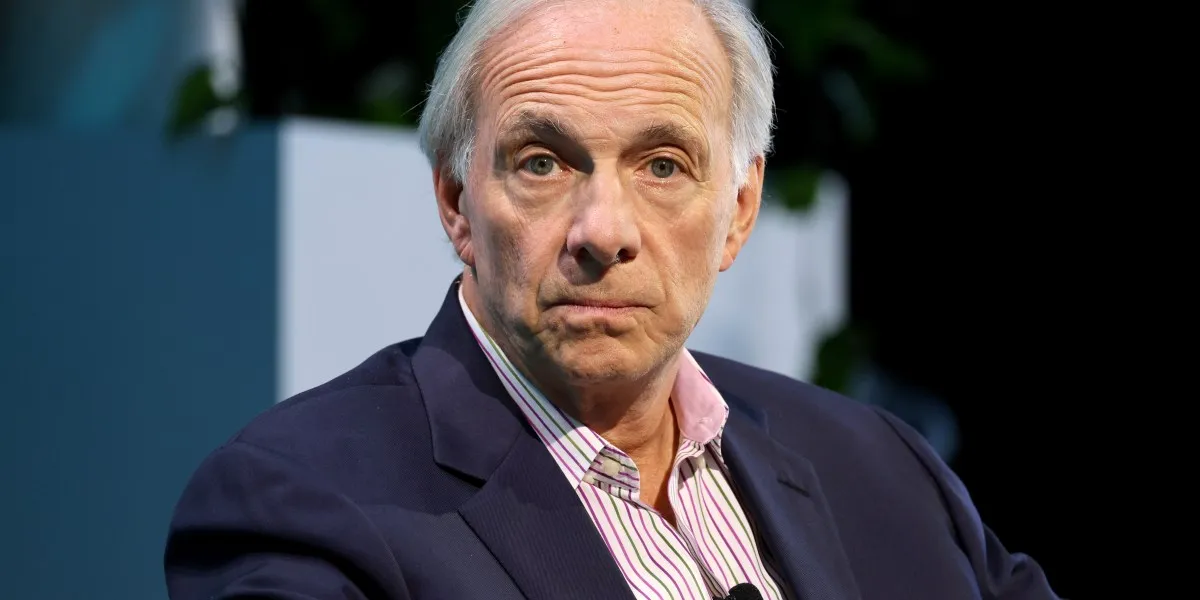
In a recent interview with Bloomberg, hedge fund founder Ray Dalio shared his concerns about the escalating friction in the U.S., suggesting that individuals’ capacity to “hurt each other” has reached unprecedented levels. Dalio articulated, “We’re in wars. There is a financial, money war. There’s a technology war, there’s geopolitical wars, and there are more military wars. And so we have a civil war of some sort which is developing in the U.S. and elsewhere, where there are irreconcilable differences.”
Dalio outlined two possible outcomes for America amid this turmoil: either the nation will come together and rise above its differences, or conflicting factions will inflict maximum pain on one another. He emphasized the importance of recognizing our common good, stating that it necessitates addressing these issues collectively so that solutions benefiting the majority can be found. However, he acknowledged that this view might be “a little bit idealistic.”
“I have to be a practical person,” Dalio continued. “I think that these conflicts will become tests of power by each side.” His perspective resonates with the growing sentiment among the American populace; a Gallup survey from last year revealed that 80% of Americans perceive their country as “greatly divided” on critical issues. Interestingly, Republicans are slightly more inclined than Democrats to believe that the nation remains united.
Dalio's warnings are not new to investors; he has consistently highlighted the potential spillover of geopolitical tensions into global conflict. In 2023, he raised alarms about the likelihood of a third world war, estimating it at a troubling 50% following Russia's invasion of Ukraine and the ongoing Israel-Hamas conflict. Critics may dismiss Dalio as alarmist, yet his past caution has proven prescient. For instance, in 2007, Bridgewater began to flag significant risks within the financial system, a warning that materialized with the onset of the 2008 financial crisis.
Despite the alarming nature of Dalio's warnings, he argues that they are somewhat inevitable. “In history, we have to recognize that all orders have come to an end, and then there’s a new order, and there’s a challenge,” he noted. He shared a guiding principle: “If you worry, you don’t have to worry. And if you don’t worry, you need to worry—if you worry then you will take care of what you’re worrying about and prevent it from happening.”
One of Dalio's primary concerns, which he identifies as a potential catalyst for global conflict, is national debt. Alongside industry leaders like Jamie Dimon and Jerome Powell, Dalio fears that the U.S. may eventually face a situation where its need to sell debt surpasses the market's appetite to buy it. This scenario could be triggered by an increasingly imbalanced debt-to-GDP ratio, which currently hovers around 125%. In such a situation, debt buyers may demand higher premiums for their investments or exit the market altogether, leaving the U.S. in a precarious position.
Dalio refers to this imbalance as the “debt bomb,” describing it as an economic heart attack waiting to happen. He explained, “When debt and debt service rise relative to your income, it’s like plaque in the arteries that then begins to squeeze out the spending.” He indicated that these tensions are not new, as similar issues have cyclically emerged throughout history. To mitigate their impact, he stressed the importance of understanding the cause and effect dynamics at play. “Whenever things are coming along that I had not seen before, I really needed to understand if they happened in history so I can understand the mechanics, which is why I study history,” he concluded.